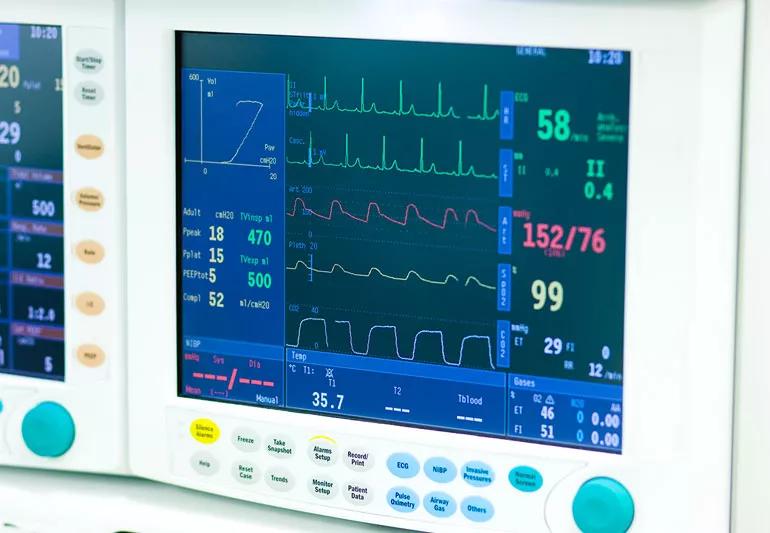Adults at low risk for heart disease may not need them

Image content: This image is available to view online.
View image online (https://assets.clevelandclinic.org/transform/5055d350-661b-484e-ba07-09440640ca8b/monitorHeartRythum-83650112-770x553-1_jpg)
heart rythum monitor
If you’re at risk for heart problems, you may be familiar with stress tests, which help give your doctor an idea of how well your heart handles work. Thinking about getting this test may make some people nervous, especially at the thought of possibly finding something wrong.
Advertisement
Cleveland Clinic is a non-profit academic medical center. Advertising on our site helps support our mission. We do not endorse non-Cleveland Clinic products or services. Policy
However, if you’re at low risk for heart problems, research shows you may not need a stress test. The American College of Physicians (ACP) also has guidelines that say that there is no evidence that these types of screenings benefit people with low risk.
“You might be considered low risk for coronary heart disease if you’re young, do not have a family history of early heart disease, are physically active and eat a healthy diet,” says cardiologist Curtis Rimmerman, MD.
Coronary heart disease is the leading cause of death in the United States, but the benefits of cardiac screening in low-risk adults have been questioned.
“The guidelines are in line with research that indicates stress tests often are performed on patients who don’t really need them,” says Dr. Rimmerman.
Stress tests are best used when all information about a patient is considered, including their risk factor profile, symptoms, age and their activity level, for example. If no additional risk factors are present, a stress test may not be necessary.
Getting unnecessary stress tests can result in false-positives, which are results indicating a problem that doesn’t actually exist. That can lead to more testing that is not needed or can be risky and more complicated.
Advertisement
Risks from the screening tests themselves include exposure to radiation, a bad reaction to an injection or problems during exercise, according to the ACP. Plus, alongside unnecessary treatments, you may also be given drugs that you don’t need. Follow-up testing and procedures can also cause anxiety and take time away from work or family.
“There is a time and a place for necessary testing,” says Dr. Rimmerman. “This is a best practice issue and, especially, an issue of what is in the best interests of the patient.”
You may need a stress test if you’re at risk for heart disease or have symptoms like shortness of breath with exertion or discomfort in the chest and other areas of the body.
“A stress test is called for when the patient reports atypical symptoms, particularly patients with diabetes and family history of premature coronary artery disease,” he says.
If you’re unsure whether or not you should get a stress test, get in touch with your doctor to discuss any symptoms (if any) and to discuss your medical history to make sure you won’t be getting a stress test needlessly. Your doctor will also be able to discuss different options for stress tests. If you’re not comfortable with the recommendations your cardiologist gives you, keep in mind that if you can get a second opinion, too.
Advertisement

Delivered every Tuesday!
Sign up for our Health Essentials emails for expert guidance on nutrition, fitness, sleep, skin care and more
It's a letter about the news!
Learn more about our editorial process.
Advertisement
The short answer from a cardiologist
Should you measure BMI, waist circumference or something else?
Study finds heart-healthy habits can’t be measured by the scale alone
Who should consider surgery for long-term weight loss
Your natural estrogen levels support a healthy heart by improving your cholesterol, increasing blood flow and reducing free radicals
Knowing what you can do to prevent or manage heart disease is half the battle
When nutritious foods are hard to come by, your health can suffer
Research shows that high doses of vitamin D do nothing to lower your cardiovascular risk
Type 2 diabetes isn’t inevitable with these dietary changes
Applying a hot or cold compress can help with pain
Pump up your iron intake with foods like tuna, tofu and turkey